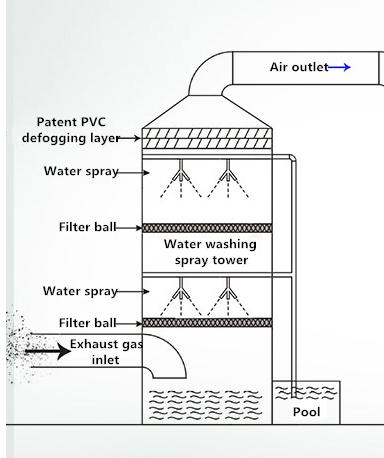tensile tester astm d412 suppliers
Understanding ASTM D412 The Importance of Tensile Testers and Their Suppliers
In the fields of materials science and engineering, the mechanical properties of materials are critical for understanding their behavior under stress. One of the key tests used to evaluate these properties is the tensile test, specifically detailed in ASTM D412. This standard provides guidelines for the testing of rubber, elastomers, and other materials to assess their behavior under tension. As such, the role of tensile testers and their suppliers becomes vital in ensuring the reliability and accuracy of these tests.
What is ASTM D412?
ASTM D412 is a standardized test method that measures the tensile properties of rubber materials. It involves applying a controlled load to a specimen until it deforms or breaks, allowing researchers and engineers to observe critical properties such as tensile strength, elongation, and modulus of elasticity. These parameters are essential for characterizing the material's performance in real-world applications, where they may be subjected to various stresses and strains.
The ASTM D412 test provides valuable information across various industries, including automotive, aerospace, and construction, where rubber and elastomer products are frequently used. For instance, tire manufacturers rely on this standard to assess the durability and performance of rubber compounds used in tire production. Similarly, companies in the medical device sector use these tests to ensure that rubber seals, gaskets, and other components can withstand the mechanical demands of their intended applications.
The Role of Tensile Testers
Tensile testers, also known as universal testing machines, are essential tools used to perform the ASTM D412 test. These machines apply controlled tensile loads to materials and measure their response. A typical tensile tester consists of grips to hold the sample, a load cell to measure force, and software to analyze the data collected during the test. Modern tensile testers are equipped with advanced features such as extensometers to measure elongation accurately, as well as data acquisition systems that facilitate real-time monitoring and analysis.
When selecting a tensile tester, factors such as the machine's load capacity, accuracy, and ease of use, as well as its ability to perform various test methods beyond ASTM D412, are critical considerations. Suppliers play an essential role in providing equipment that meets the specific needs of their clientele.
Choosing the Right Supplier
tensile tester astm d412 suppliers

The market for tensile testers is vast, with numerous suppliers offering a range of products suitable for ASTM D412 and other testing standards. When searching for a reliable supplier, consider the following factors
1. Reputation Established suppliers with a solid reputation in the industry are often more reliable. Look for reviews, testimonials, and case studies that illustrate their experience and customer satisfaction.
2. Product Range A supplier that offers a wide range of tensile testers helps ensure you have access to the right equipment tailored to your specific needs. This variety could include basic models for straightforward applications or advanced systems with sophisticated features for high-end research.
3. Support and Service Technical support and warranty services are essential when investing in expensive testing equipment. Choose a supplier with robust customer service to assist with troubleshooting, maintenance, and calibration when needed.
4. Calibration and Compliance Ensure the supplier provides calibration services that keep the tensile tester compliant with ASTM D412 and other relevant standards. This aspect is crucial for ensuring the accuracy and reliability of test results.
5. Training Some suppliers offer training programs for users to familiarize themselves with the equipment and its capabilities. This aspect can be beneficial in maximizing the machine's potential and ensuring consistent testing results.
Conclusion
As industries continue to evolve, the demand for reliable and accurate materials testing will only increase. Suppliers of tensile testers play a critical role in facilitating adherence to testing standards such as ASTM D412. By understanding the importance of this standard and choosing the right supplier, companies can ensure they have the necessary tools to evaluate the mechanical properties of materials effectively. In turn, this leads to enhanced product safety and performance, which are paramount in today’s competitive marketplace.
-
Why the Conductor Resistance Constant Temperature Measurement Machine Redefines Precision
NewsJun.20,2025
-
Reliable Testing Starts Here: Why the High Insulation Resistance Measuring Instrument Is a Must-Have
NewsJun.20,2025
-
Flexible Cable Flexing Test Equipment: The Precision Standard for Cable Durability and Performance Testing
NewsJun.20,2025
-
Digital Measurement Projector: Precision Visualization for Modern Manufacturing
NewsJun.20,2025
-
Computer Control Electronic Tensile Tester: Precision and Power for the Modern Metal Industry
NewsJun.20,2025
-
Cable Spark Tester: Your Ultimate Insulation Assurance for Wire and Cable Testing
NewsJun.20,2025
 Copyright © 2025 Hebei Fangyuan Instrument & Equipment Co.,Ltd. All Rights Reserved. Sitemap | Privacy Policy
Copyright © 2025 Hebei Fangyuan Instrument & Equipment Co.,Ltd. All Rights Reserved. Sitemap | Privacy Policy
